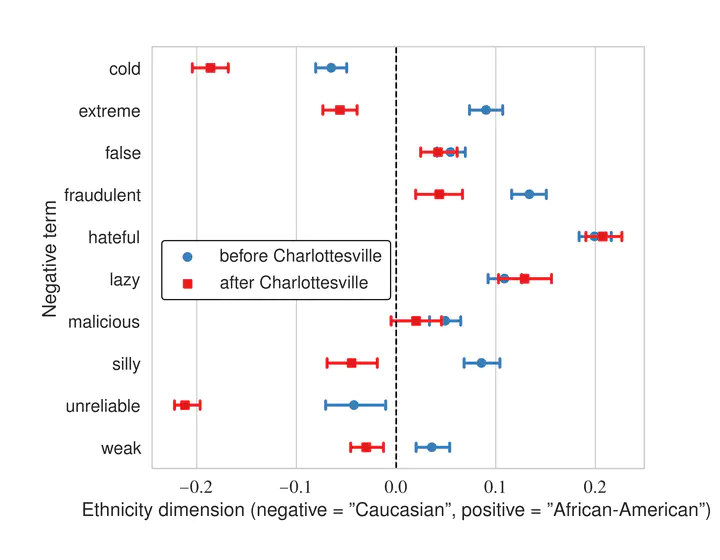
Abstract
African-Americans are still experiencing racial discrimination rooted in structural bias in US American society. Research has shown that this behaviour can be reduced if individuals are made conscious of their bias, but little is known about these mechanisms on a societal level. Envisaging the white-supremacist Charlottesville rally in 2017 as an event that rendered American society conscious of its racism, we scrutinise whether racial bias in the digital media has changed, comparing levels of pre- and post-Charlottesville bias. We fit word embedding models to a broad sample of largely US media and quantify bias by calculating cosine similarities between terms for black or white actors and positive or negative character traits. We find no differences in positive character traits after Charlottesville. However, African-Americans are associated substantially less with negative character traits post-Charlottesville, while white actors are semantically closer to negative traits.